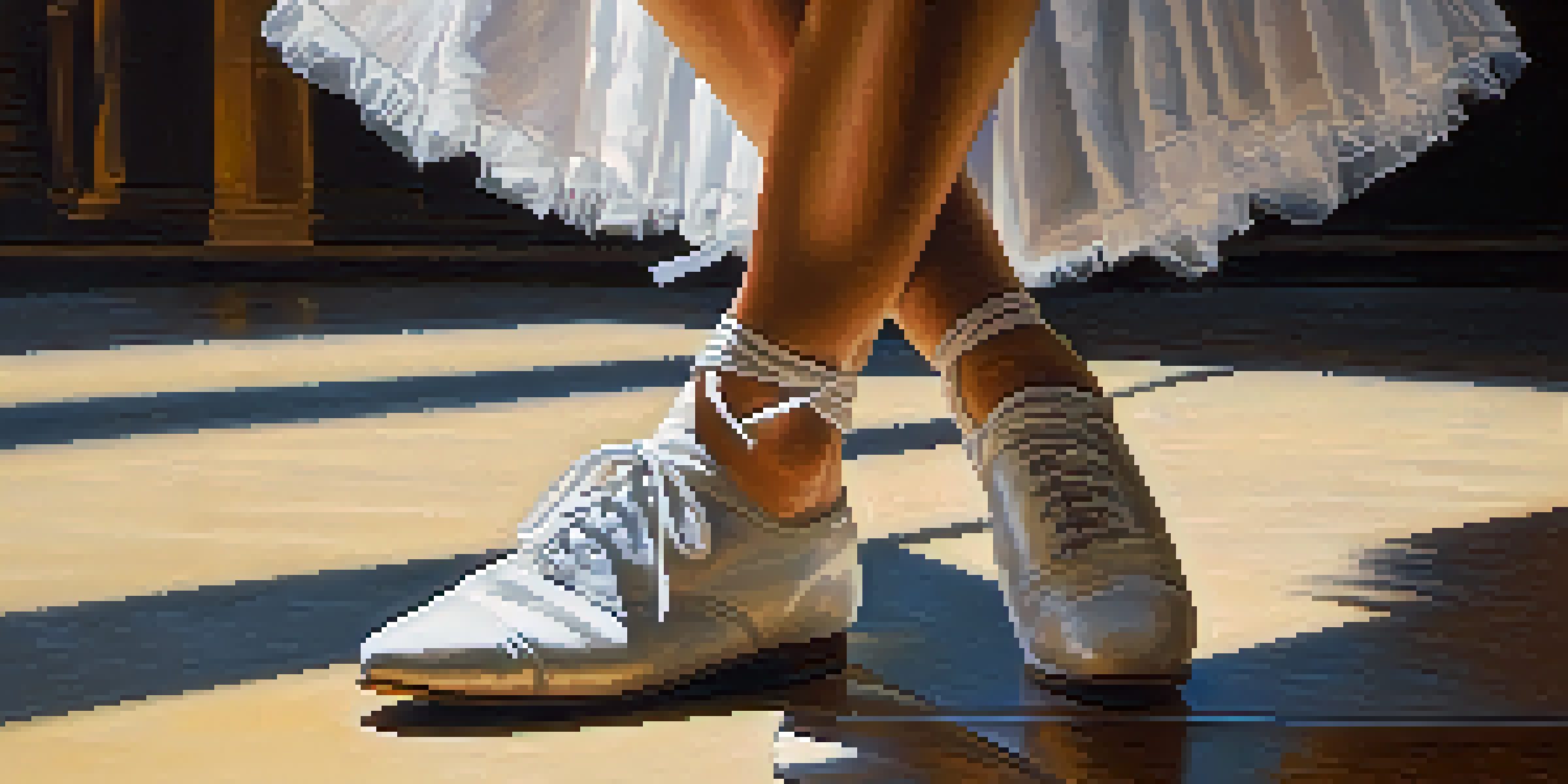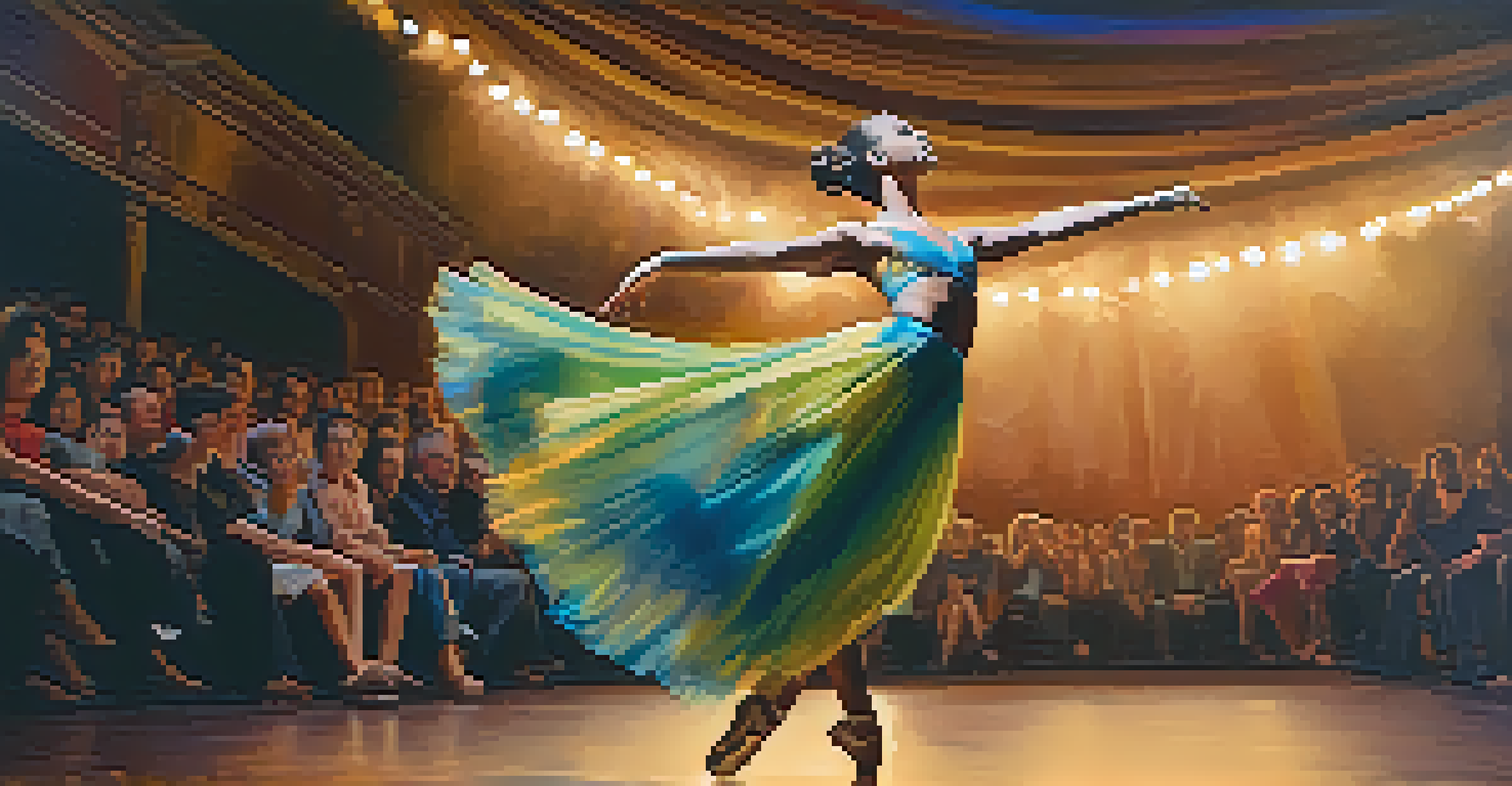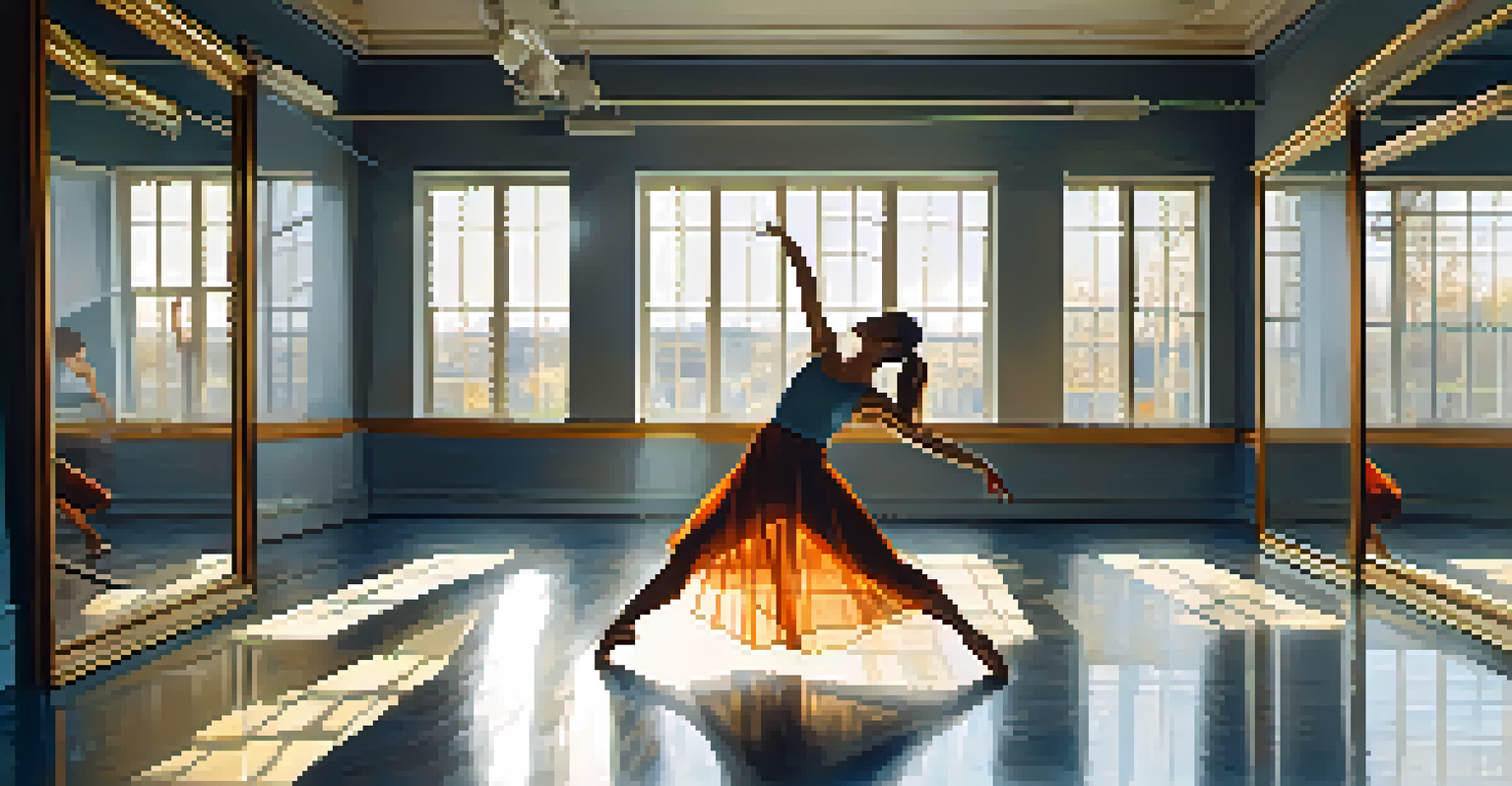Tips for Building Confidence Before a Dance Competition

Understand the Importance of Confidence in Dance
Confidence can be a game-changer in dance competitions. It not only affects your performance but also how the judges perceive you. When you dance with confidence, you're more likely to engage and connect with your audience.
The more you practice, the better you get, the more freedom you have to create.
Think of confidence as the fuel that powers your dance. Without it, even the most talented dancers can feel lost on stage. Remember, every dancer experiences nerves, but channeling that energy positively can elevate your performance.
Ultimately, confidence allows you to showcase your hard work and dedication. It’s about believing in yourself and your abilities, which can make all the difference when it’s time to perform.
Practice, Practice, Practice: The Key to Confidence
One of the best ways to boost your confidence is through consistent practice. Familiarity with your routines allows you to dance more fluidly and naturally. As you repeat your steps, you'll find comfort in your movements, translating to greater self-assurance.

Consider setting aside specific times for focused practice sessions. This dedicated time helps reinforce muscle memory, so when competition day arrives, your body knows exactly what to do without overthinking.
Confidence Drives Performance
Dancing with confidence enhances your connection with the audience and influences how judges perceive your performance.
Additionally, practicing in front of friends or family can simulate the experience of performing live. Their feedback can provide constructive insights and help you feel more prepared for the actual competition.
Visualize Your Success to Enhance Confidence
Visualization is a powerful tool many successful dancers and athletes use. Picture yourself executing each move flawlessly, feeling the rhythm, and receiving applause from the audience. This mental rehearsal can create a sense of familiarity and ease anxiety.
Mistakes are a fact of life. It is the response to the error that counts.
Take a few quiet moments before your performance to visualize yourself on stage, confident and in control. This practice helps bridge the gap between preparation and performance, making the actual event feel less daunting.
Remember, the mind often believes what it sees. By visualizing success, you’re training your brain to expect a positive outcome, which can significantly boost your confidence as you step onto the stage.
Develop a Pre-Performance Routine for Consistency
Establishing a pre-performance routine can help ground you and build confidence. This routine can include everything from warming up your body to practicing deep breathing exercises. Such rituals signal to your mind and body that it's time to perform.
Consider incorporating affirmations into your routine. Simple phrases like 'I am prepared' or 'I will shine' can help reinforce a positive mindset. Repeating these affirmations as part of your routine can empower you just before you step onto the stage.
Practice Builds Self-Assurance
Consistent practice not only reinforces muscle memory but also boosts your confidence by making movements feel more familiar.
Having a consistent routine allows you to approach each competition with a sense of familiarity. This predictability can help reduce anxiety and ensure you feel ready to give your best performance.
Dress for Success: Your Outfit Matters
The right outfit can significantly influence your confidence. Wearing something that makes you feel comfortable and beautiful can uplift your spirits. It's essential that your costume allows you to move freely without any distractions.
Take time to choose your outfit well before the competition. When you feel good in what you're wearing, it shows in your performance. Plus, familiarizing yourself with your costume during practice can help eliminate any last-minute surprises.
Additionally, consider personalizing your look with accessories that make you feel special. Whether it's a favorite pair of earrings or a lucky charm, these small touches can give you a boost of confidence as you take the stage.
Connect with Your Fellow Dancers for Support
Building a supportive community with your fellow dancers can greatly enhance your confidence. Sharing experiences, tips, and even nerves can create a sense of camaraderie that alleviates pressure. You're all in this together, and knowing that can be comforting.
Encourage each other with positive affirmations and reminders of each other's strengths. Sometimes, a simple 'You've got this!' from a teammate can make all the difference in calming pre-performance jitters.
Support From Fellow Dancers
Building a supportive community with fellow dancers fosters camaraderie and can significantly enhance your confidence before performances.
Consider organizing pre-competition gatherings where you can practice together, share routines, and support one another. Creating a strong bond with your fellow dancers can help you feel more confident as you step into the spotlight.
Embrace Mistakes: They’re Part of the Journey
Understanding that mistakes are a natural part of performing can help ease pressure and enhance confidence. Every dancer has experienced a slip-up, and it’s essential to view these moments as learning opportunities rather than failures.
Instead of fearing mistakes, focus on how you can recover from them. Having a plan for how to handle an unexpected moment can empower you to stay composed. This mindset shift can transform your perspective on competition.

Remember, even the most seasoned dancers have faced challenges on stage. Embracing this reality can help you approach your performance with a lighter heart, allowing you to focus on the joy of dancing rather than the fear of perfection.